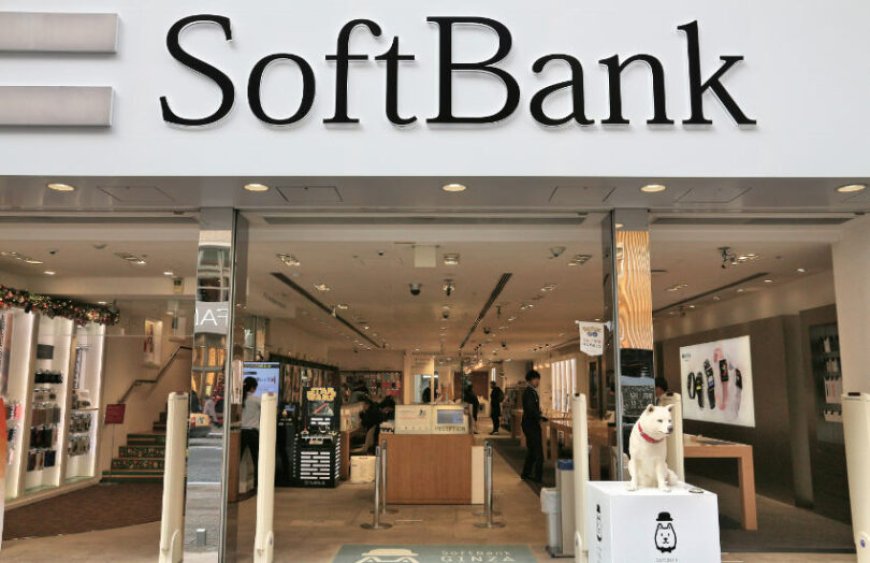SoftBank Invests $2 Billion in Intel as U.S. Considers 10% Stake to Boost Domestic Chip Production
SoftBank invests $2 billion in Intel as the U.S. considers a 10% government stake, aiming to strengthen domestic semiconductor production and global competitiveness.

SoftBank has announced a $2 billion strategic investment in Intel Corporation, signaling renewed confidence in the U.S. semiconductor giant as the federal government weighs a potential 10% stake in the company to strengthen domestic chip manufacturing. The move comes amid escalating global competition in the semiconductor sector and growing concerns about supply chain vulnerabilities.
SoftBank’s Strategic Move
The $2 billion investment, revealed Monday, is expected to support Intel’s research, development, and expansion initiatives, particularly in next-generation chip production. A SoftBank spokesperson emphasized that the partnership aims to accelerate innovation in artificial intelligence, high-performance computing, and advanced semiconductor fabrication.
“Intel is at the forefront of the technology revolution,” said Masayoshi Son, SoftBank’s CEO. “Our investment reflects confidence in their vision and the critical role semiconductors play in the global economy.”
The announcement follows several months of negotiations, as SoftBank looks to diversify its technology portfolio and tap into the growing demand for advanced microchips across AI, cloud computing, and automotive sectors.
U.S. Government Considerations
The investment occurs against the backdrop of discussions within the U.S. Department of Commerce and Treasury over the possibility of a 10% federal stake in Intel. Officials argue that increased government involvement could secure domestic production capacity, reduce reliance on foreign semiconductor supply chains, and bolster national security.
Intel CEO Pat Gelsinger has publicly expressed openness to collaboration with the government while maintaining operational independence. “We welcome partnerships that help advance American semiconductor leadership while preserving the company’s ability to innovate freely,” he said.
Market Implications
The news sparked a positive reaction in U.S. equity markets. Intel shares rose approximately 3% in pre-market trading, reflecting investor optimism about the combined impact of private and potential federal investment. Analysts note that SoftBank’s involvement signals strong institutional confidence, which may also influence other global investors to consider the chip sector.
Experts from Morningstar and Bloomberg Intelligence suggest that the dual approach—private capital infusion alongside potential government backing—could strengthen Intel’s ability to compete with major global rivals such as TSMC and Samsung.
Semiconductor Industry Context
The semiconductor industry has been under intense pressure in recent years, with rising geopolitical tensions and supply chain disruptions affecting production and pricing. Intel, long considered a U.S. technology stalwart, has faced challenges keeping pace with overseas competitors in advanced process nodes.
Government support, combined with strategic private investment, could accelerate domestic manufacturing projects and help Intel meet increasing demand from industries including electric vehicles, 5G networks, and AI-driven applications.
Broader Economic Impact
A strengthened Intel has implications beyond technology. Analysts note that boosting domestic chip production can safeguard jobs, stimulate high-tech manufacturing, and reduce the U.S.’s reliance on foreign semiconductor supply, particularly from East Asia.
“Investments like SoftBank’s, coupled with potential government backing, create a foundation for long-term technological competitiveness,” said James Lee, a semiconductor policy expert at Brookings Institution. “It is not just about Intel; it is about securing a supply chain critical to the U.S. economy and national security.”
Outlook Ahead
The coming months will be closely watched by investors, industry stakeholders, and policymakers. If the U.S. government proceeds with a partial stake in Intel, combined with SoftBank’s investment, it could mark a turning point for domestic semiconductor production and strengthen the country’s position in a strategic global industry.
What's Your Reaction?
 Like
0
Like
0
 Dislike
0
Dislike
0
 Love
0
Love
0
 Funny
0
Funny
0
 Angry
0
Angry
0
 Sad
0
Sad
0
 Wow
0
Wow
0







































































